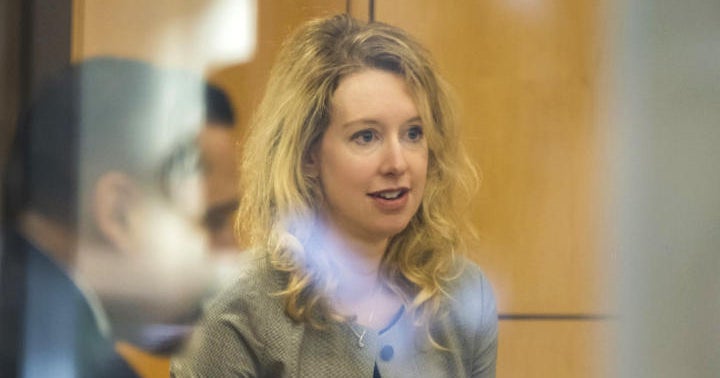Deposed Theranos CEO Elizabeth Holmes was sentenced to 11 years and three months behind bars on Friday, capping a years-long saga that captivated the technology world and closing a chapter on one of the most spectacular corporate flameouts in U.S. history.
Federal Judge Edward Davila imposed the sentence after an unusual hearing that stretched over four hours in which prosecutors argued with Holmes’ lawyers about her motives, investor losses and her degree of remorse.
“Failure is normal. But failure by fraud is not OK,” Davila said before handing down the sentence, calling the case “troubling on so many levels.” He ruled that Holmes never accepted responsibility for her actions.
“I am devastated”
Holmes, 38, tearfully addressed the court before Davila handed down his sentence. “I regret my failings with every cell of my body,” she said.
“I am devastated by my failings,” she told the court. “I have felt deep pain for what people went through, because I failed them.”
Holmes’ prison term is set to begin April 27. She is also required to serve three years of probation after her release.
The sentence is likely to send a message to other high-flying technology startups about the risks of deceiving customers and investors. It fell short of the 15 years prosecutors asked for, but was far longer than Holmes’ legal team had sought for the mother of a one-year-old son who has another child on the way.
Davila also said he will determine at a later date how much money Holmes must repay to defrauded investors, if any. Prosecutors had sought $804 million in repayment to investors who they said lost “everything.”
Letters of support
Holmes’ defense team submitted 140 letters testifying to her character, including one from her partner, William Evans, and from New Jersey Senator Cory Booker.
Among those also giving statements was Alex Shultz, the son of Theranos board member and former U.S. Secretary of State George Shultz. Alex’s son, Tyler, worked for Theranos and ultimately became a whistleblower when he discovered the company’s tests didn’t work. When Tyler Shultz raised concerns, he was allegedly threatened by the company.
“My son slept with a knife because he was afraid of being killed,” Shultz told the court as he glared at Holmes. He recounted lawyers for Theranos confronting Tyler in their home, saying, “My family home was desecrated by Elizabeth and the lawyers.”
In January, a jury convicted Holmes of four counts of fraud and conspiracy for her claims about Theranos, the blood-testing startup she launched in 2003.
At its peak, Theranos was valued at $10 billion and boasted luminaries including Larry Ellison and Rupert Murdoch as investors. However, a series of exposes by the Wall Street Journal, followed by multiple investigations by federal and state officials, revealed that Holmes had vastly overstated her technology’s capabilities.
Balwani also faces sentencing
Federal prosecutor Robert Leach emphatically declared Holmes deserves a severe punishment for engineering a scam that he described as one of the most egregious white-collar crimes ever committed in Silicon Valley.
In a scathing 46-page memo, Leach told the judge he has an opportunity to send a message that curbs the hubris and hyperbole unleashed by the tech boom of the past decade.
Holmes “preyed on hopes of her investors that a young, dynamic entrepreneur had changed health care,” Leach wrote. “And through her deceit, she attained spectacular fame, adoration, and billions of dollars of wealth.”
Former Theranos Chief Operating Officer Ramesh “Sunny” Balwani was convicted of 12 counts of fraud and is set to be sentenced Dec. 7.


